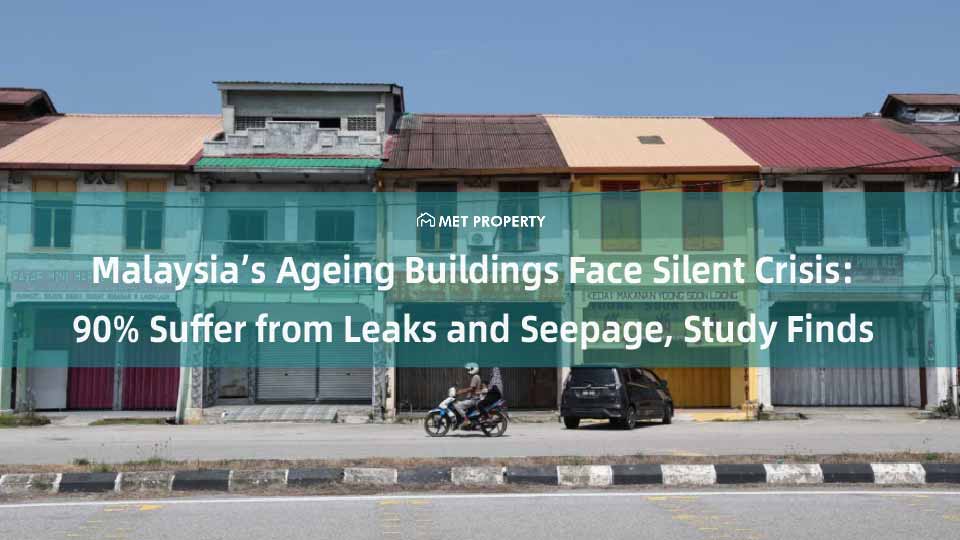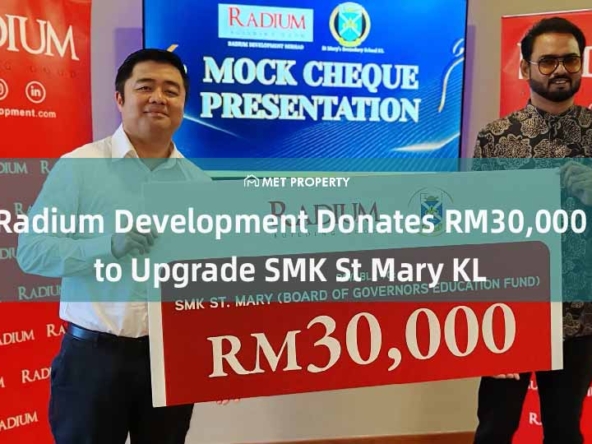“A 2025 study finds 90% of Malaysia’s buildings suffer from leaks and poor maintenance, raising alarm over long-term property safety and asset value.”
Kuala Lumpur, 07th Octorber 2025, 10.55am – A new nationwide survey has uncovered a growing maintenance crisis across Malaysia’s property market, revealing that nine out of ten buildings suffer from leaks and seepage due to ageing structures, limited budgets, and outdated upkeep practices.
The joint study by Nippon Paint Malaysia and the Malaysian Institute of Property and Facility Managers (MIPFM) highlights a dangerous “reactive maintenance culture,” where repairs are often carried out only after damage occurs — resulting in higher refurbishment costs, structural decay, and declining investor confidence.
“By identifying issues early, we now have the opportunity to work together with regulators, building owners, and solution providers to strengthen standards and improve long-term asset resilience,” said Ishak Ismail, President of MIPFM. “Proactive maintenance benefits not only buildings but also owners, investors, and tenants.”
Maintenance Crisis in the Built Environment
Conducted in August 2025, the survey gathered responses from property managers, architects, and facilities professionals across Malaysia’s residential and commercial sectors. The findings paint a concerning picture of neglect — with 40% of professionals admitting to inspecting buildings only once a year, while another one in six does so quarterly.
This lack of regular inspection allows small leaks to escalate into costly structural issues. The report found that:
- 90% of respondents reported roof leaks due to poor drainage or rainwater pooling.
- 90% experienced wall seepage issues.
- 70% reported leaks in bathrooms and wet areas.
Experts warn that these problems, if left unaddressed, could undermine not just building safety and liveability but also Malaysia’s overall property market competitiveness.
Short-Term Savings, Long-Term Losses
Many property professionals admitted to deferring waterproofing repairs due to cost concerns. However, experts emphasize that these short-term savings often lead to far greater long-term expenses.
“Waterproofing failures are not minor defects,” said Tay Sze Tuck, General Manager of Nippon Paint Malaysia. “Addressing them early safeguards safety, manages costs, and preserves property value. To remain competitive, Malaysia must transition from short-term fixes to preventive protection.”
The report warns that delayed maintenance not only accelerates asset depreciation but also weakens tenant confidence and investor trust — posing a broader economic risk if left unresolved.
Industry Confidence and Standards Under Scrutiny
Beyond individual buildings, the survey reveals systemic challenges in the industry. Two-thirds of respondents expressed only moderate satisfaction with their contractors and vendors, signalling widespread concerns over workmanship quality and accountability.
Industry experts are calling for improved regulations, stronger enforcement, and more comprehensive maintenance planning to future-proof Malaysia’s real estate assets.
As Malaysia continues to urbanise, the report underscores the importance of shifting towards preventive maintenance — a necessary move to ensure the country’s built environment remains safe, sustainable, and investment-ready for the future.




